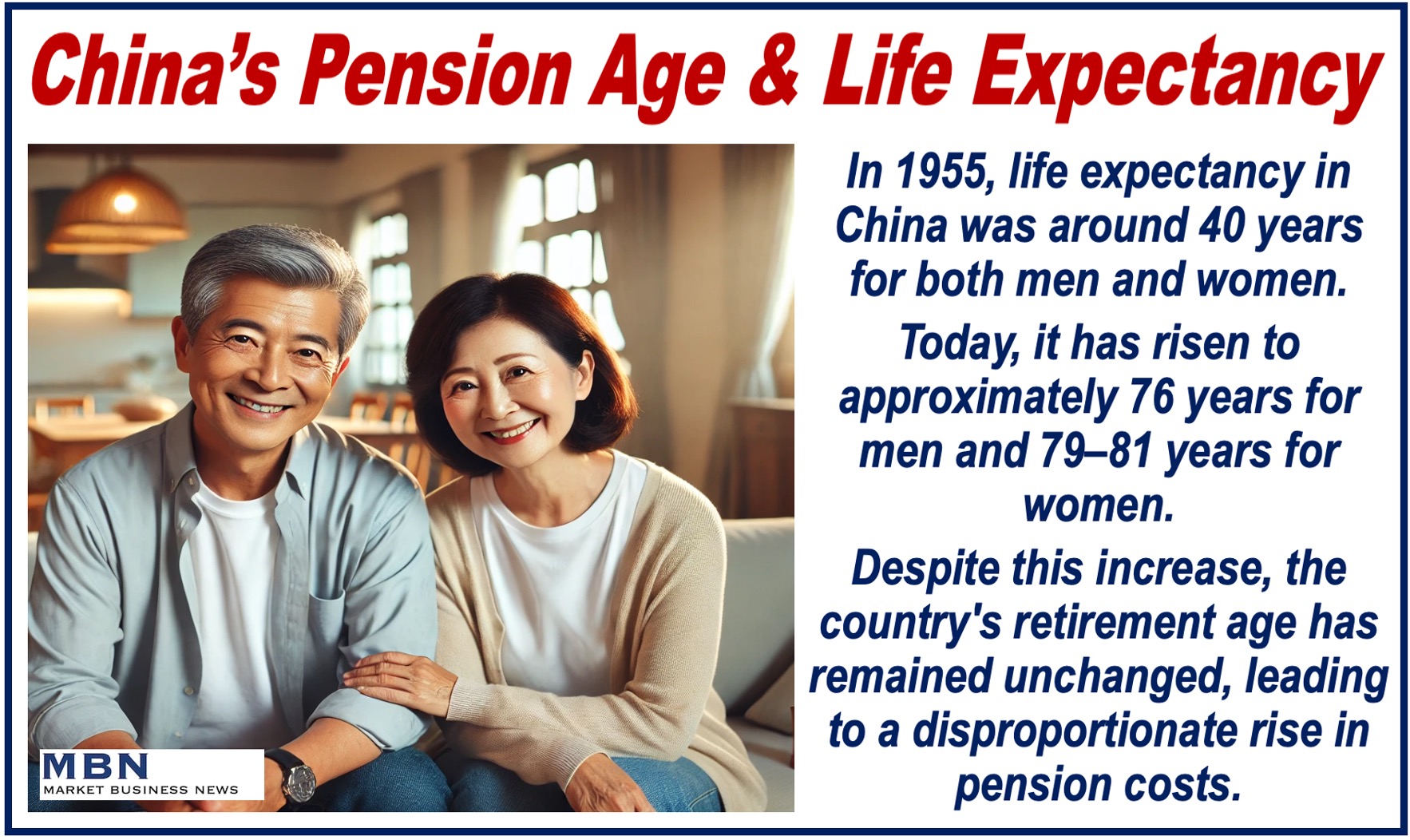China is preparing to raise its retirement age for the first time in over six decades, responding to a growing demographic crisis and economic challenges.
The change will come into effect gradually, beginning in 2025, and is designed to address the strain caused by an aging population and a shrinking workforce.
The retirement age for men, which has been set at 60 since the 1950s, will increase to 63 by 2040.
Women working in white-collar jobs will see their retirement age rise from 55 to 58, while those in blue-collar positions will have their retirement age raised from 50 to 55.
This phased reform is intended to minimize disruptions in the labor market and help sustain the pension system.
Population Challenges
According to the World Economic Forum, China’s population is aging rapidly, with more people entering retirement and fewer young workers to replace them.
In 2023, the country recorded its second consecutive population decline, sparking concerns about the long-term impact on the economy, healthcare, and social welfare systems.
By 2040, a significant portion of the population will be over 65, putting immense pressure on public resources.
Life expectancy in China has increased to 78.2 years, which, combined with a low birth rate, presents a unique challenge. As people live longer, the cost of pensions and healthcare rises, requiring reforms to keep the economy stable.
The Chinese government aims to adapt to these new realities by adjusting its retirement policies and ensuring that pensions remain sustainable over the long term.

Image created by Market Business News.
Economic Impact
Raising the retirement age is seen as crucial for maintaining economic stability. By keeping people in the workforce longer, China hopes to offset the declining number of young workers entering the labor market.
Additionally, the reform is expected to increase human resource efficiency, as it allows the country to utilize the experience and skills of older workers.
From 2030, workers will also need to contribute to the pension system for 20 years, an increase from the current 15 years, to qualify for full retirement benefits.
This extension will help bolster the pension fund and ensure that retirees continue to receive adequate financial support.
Public Reaction
The announcement has sparked widespread discussion on social media. While many Chinese citizens acknowledge the necessity of raising the retirement age, others express concerns about having to work longer, particularly younger generations. As life expectancy increases, future workers may face even longer careers before they can retire.
Nevertheless, experts view the reform as a necessary adjustment to the country’s shifting demographic landscape. With careful implementation, it aims to stabilize the economy, support an aging population, and ensure that China’s workforce remains robust in the years to come.
China and other countries
How does China compare to other developed nations and Russia in terms of retirement age?
It is the only country in the list below with a different retirement age for men and women. You’ll also notice that people in advanced economies generally retire later than in China.
Below is a list of retirement ages across 10 countries, including China:
-
United States
The full retirement age is between 66 and 67, depending on birth year. Early retirement can begin at age 62.
-
Canada
The standard retirement age is 65, with the possibility to start receiving a pension as early as 60 or delay it until 70.
-
United Kingdom
The current state pension age is 66 for both men and women, rising to 67 between 2026 and 2028.
-
Germany
The retirement age is gradually increasing from 65 to 67 by 2031.
-
France
The retirement age is currently 62, but there are plans to gradually raise it to 64 by 2030.
-
Italy
The retirement age is 67, though early retirement options are available under certain conditions.
-
Japan
The official retirement age is 65, but companies often allow employees to work until 70 if they choose.
-
Russia
The retirement age is currently 61.5 for men and 56.5 for women, with plans to raise it to 65 for men and 60 for women by 2028.
-
China
The current retirement age is 60 for men and 50 or 55 for women, depending on the type of work, but it will gradually rise starting in 2025, reaching 63 for men and 55-58 for women by 2040.
